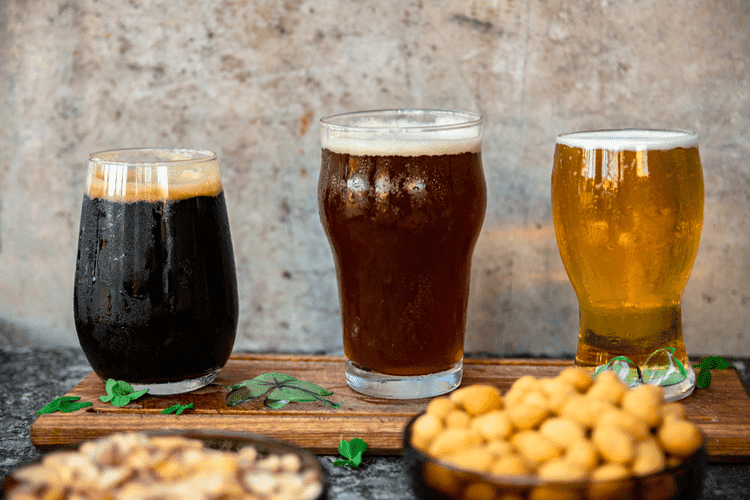- Empty cart.
- Continue Shopping
Does Alcohol Dehydrate You? Understanding The Health Risks
Scientists commonly measure dehydration by looking at the concentration of sodium and other solids in urine, which is what makes pee darker in color. But that isn’t the most precise way to tell whether someone needs more water, says Hew-Butler. Because of these factors, there’s no hard and fast rule for how much water you should consume. “If you get thirsty, drink water. If you’re not thirsty, you don’t need to drink water.”
Here’s How to Really Avoid Alcohol Dehydration Symptoms
- This is because alcohol can affect the hypothalamus, the part of the brain that controls body temperature.
- Thirst plays a central role in fine-tuning that balance, she explains.
- Acetate and other waste products are then removed from the body as carbon dioxide and water, primarily through lungs.
- The recommended daily limit for alcohol consumption is two drinks for men and one drink for women.
In addition, certain activities, such as exercise or working outdoors in the heat, can increase the risk of dehydration. Dehydration is a common condition that occurs when your body doesn’t have enough fluids to function normally. Because individuals are so different, it is difficult to predict how many drinks will cause a hangover. Any time people drink to intoxication, there is a chance they could have a hangover the next day.

Do Alcoholics Sweat More? The Smelly Truth
- Its diuretic effects lead to wrinkled, gray, lackluster skin that can look swollen and puffy.
- While the amount of alcohol you consume is the main determinant of how dehydrated you’ll eventually become, you’re better off starting a drinking session well hydrated as opposed to already dehydrated.
- Although mild to moderate dehydration can usually be treated at home, moderate to severe dehydration may require medical treatment, such as receiving fluids through an IV.
- But that consumption doesn’t need to come entirely from drinking glasses of water.
- Alcohol is another diuretic that sends you on frequent trips to the bathroom.
Alcohol consumption can also impair the body’s ability to regulate its temperature. This is because alcohol can affect the hypothalamus, the part of the brain that controls body temperature. Dehydration can increase the risk of heat stroke, especially when combined with exposure to hot and humid environments, such as in a crowded bar or nightclub.
Does Weed Make You Dehydrated?
These drinks can be just as delicious and refreshing as alcoholic drinks, and they won’t dehydrate you. Another common symptom of dehydration caused by alcohol consumption is dizziness and lightheadedness, which can increase the risk of falls and other accidents. That splitting headache you wake up with after a fun night of drinking might not be entirely due to dehydration. Some people may react to the tannins in wine, while others are sensitive to ethanol, the chemical found in alcohol that causes vasodilation, or the dilation of blood vessels.
Ten grams of alcohol is about 12.5 millilitres (but you can call it 10 mL and still be fairly accurate). So each glass of beer, wine, or spirits has about 10 grams of alcohol. We humans have been making and drinking alcohol for thousands of years.
If you notice a dry mouth or other signs of dehydration, stop drinking alcohol and prioritize hydration. Consuming a meal containing plenty of healthy fats before drinking buffers alcohol absorption and allows Sober House more time to process and detoxify alcohol, which helps prevent dehydration. Consuming alcohol on an empty stomach causes rapid intestinal alcohol absorption, amplifying the dehydrating effects of alcohol.
What to Do If You’re Already Dehydrated from Alcohol
That will increase your ability to reabsorb water, and leave you more likely to wake up feeling sparkling and ready to face the day — or at least less inclined to put a pillow over your head. Alcohols like whiskey and brandy have high levels of congeners, including tannins and acetaldehyde. These might lead to dehydration more quickly, according to a 2010 study [8] [9].
- Excessive drinking can also lead to a buildup of a toxic substance called acetaldehyde.
- PLUS, the latest news on medical advances and breakthroughs from Harvard Medical School experts.
- Let’s talk about dehydration from alcohol — why it happens, how to avoid it, and the immediate remedies you can use to avoid a hangover.
- A 2016 study published in the American Journal of Clinical Nutrition assigned a beverage hydration index (BHI) to various drinks that would determine hydration status after ingestion.
- Taking steps to avoid the overconsumption of alcoholic, caffeinated, and sugary beverages may help a person avoid dehydration.
Interestingly, dark liquor also seems to be more dehydrating than light/clear liquors. That’s because they contain high levels of tannins and acetaldehyde. So, when drinking liquors like whiskey and brandy, it’s especially important to consider how many drinks you’ve consumed versus glasses of water. With interrupted production of vasopressin due to the consumption of alcohol, you start to lose more water through urination, which can cause those symptoms of dehydration.
If you binge drink, you’ll likely lose 500 to 1,000 mL of fluids, causing dehydration. Alcohol decreases the amount of ADH your https://thecupertinodigest.com/top-5-advantages-of-staying-in-a-sober-living-house/ body produces, making it harder to retain enough fluids. The higher the alcohol content, the greater this effect will be.
